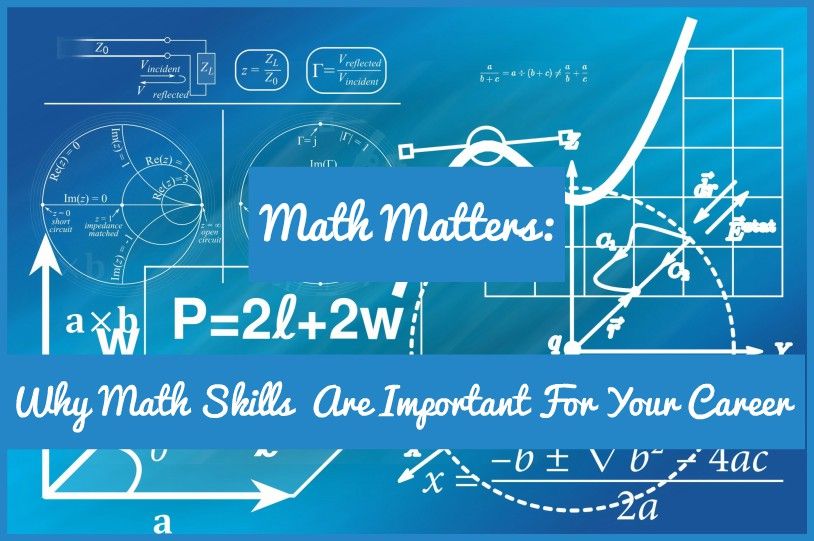
Math Matters: Why Math Skills Are Important For Your Career
Yes, all of those pre-Millenium teachers adamant you wouldn’t have a calculator on you at all times were wrong. Calculators, in the form of their slightly more complicated brothers the computer, are everywhere.
Calculators and computers notwithstanding, you still need basic math skills to operate them. Math isn’t about calculating tips or adding a few numbers, it’s about a whole set of necessary life skills.
Countries that boast a high degree of math literacy also boast high qualities of life. That’s not a coincidence as the understanding and use of one relates heavily to the other.
Read on to learn more about how everyday math skills impact your working life.
Math Skills as a Skill Indicator
While some pieces of knowledge change little about our lives, other pieces shift paradigms.
Learning that germs cause disease or that mantis shrimp see a different light spectrum changes something fundamental.
In the case of mathematics, knowing math opens up worlds you previously didn’t know existed.
General Skills
Math knowledge correlates strongly with understandings of logic, problem-solving, and critical thinking. The ability to solve math problems schools the brain in different approaches to individual answers.
Math is the only human discovery that has proof. No matter how much we know about gravity, it’s still, at its base, a guess. A good guess which hasn’t gone wrong, but a guess.
Math, on the other hand, has proof. You can prove something in math 100%. This certainty of an answer lets us understand how we go about solving problems.
We can chart how effective the pathway to an answer is. Those that solve harder problems with simpler techniques, using fewer steps and resources, can be seen as objectively better.
Algebra, in particular, requires a person to be able to cross barriers between the absolute and the abstract. Creative visualization is one of the major tricks to learning algebra as well as to solving everyday office problems!
Career Specific
While math helps in general careers, it is essential in STEM and CIS fields.
Medical fields require knowledge of math to track infection growth rates, drug dosages, and mortality odds.
Audio engineers understand Fourier analysis to create pitches and harmonies. Timing and music theory also integrates with math knowledge.
Financial institutions run on actuarial tables and on an understanding of mathematical trends and outcomes.
Computer software developers use math to create 3D objects, shapes in program physics, and design hardware utilization processes.
Ski resorts rely on experts with math skills to judge the stability of snowpack and slopes. Fluid dynamics and particulate weight needs to be considered carefully to prevent avalanches and freezing.
Mechanics for engines need math to set timing belts and pistons to keep a car running smoothly and to improve fuel economy.
Statisticians use math to calculate the odds of different outcomes. They influence change in disparate fields from governmental policy to the settings of chips in slot machines.
Train Your Math Skills so That They Can Help You in Your Career
Like any other skill, math skills come from practice and repetition. To make an impact on your career and climb the ladder, you need to focus on improvement.
Speaking of repetition, come back here for more career tips and news—and be sure to share this article if you found it interesting.
© New To HR


